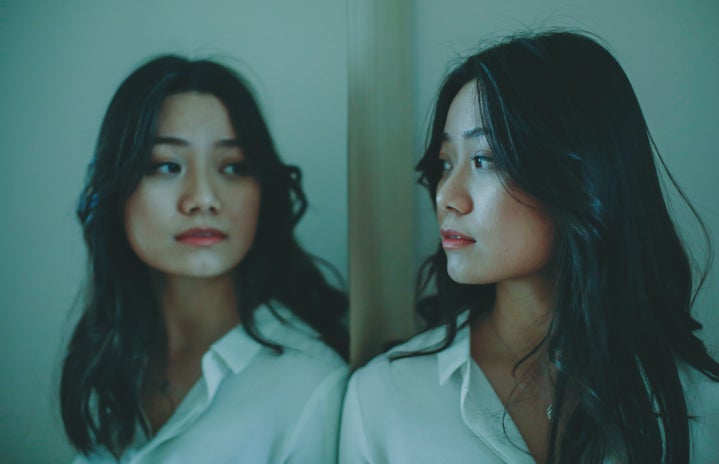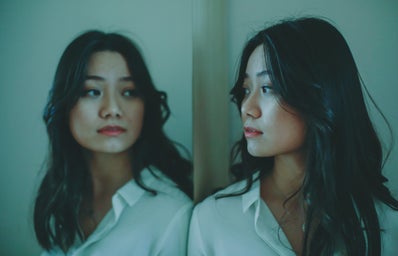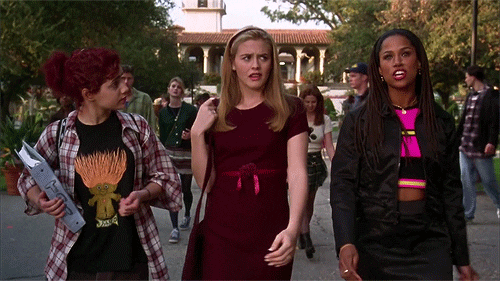Do me a favor and think of the prettiest person you know. Is she confident, put-together, and oh so cool? Does she stumble upon good things and effortlessly achieve whatever she wants?
Now tell me this: have you ever caught yourself wondering how much of her success and good fortune is because of the way she looks?
The phrase “pretty privilege” describes the phenomenon of better-looking people seemingly having an easier time moving through life. While there’s some scientific reasoning and lots of personal anecdotes behind the idea, it’s worth taking a look at who’s talking about pretty privilege, who’s benefiting from it, and who’s controlling the narrative.
How rooted in truth is pretty privilege, anyway?
There are quite a few studies that show that psychologically, people respond more favorably to those they see as more attractive. This probably doesn’t come as a surprise. Loving beauty is in our nature. Think super cute babies, a barista who’s just your type, or a celebrity that looks like a work of art — chances are, there are certain groups of people who you’d go more out of your way to be nice to. No judgment here, bestie.
There’s research linking physical attractiveness to everything, from better job success to higher grades. So clearly, the idea of pretty privilege is rooted in some amount of scientific evidence. Remember, though, that it’s hard to differentiate causation from correlation in research like this: what other variables could these studies be missing? It’s also worth considering whether these individual findings can definitively prove a concept as broad as pretty privilege.
Pretty Privilege in the Media
Bear with me while I state the obvious once again: in movies and TV, pretty people always come out on top. Main characters are typically very attractive and are often praised excessively for their looks. This is especially true in media for teenagers and young adults, where beauty is sometimes a main component of a plot or character arc. We all love a good makeover scene, but what’s the message to young women when the girl on their screen is treated so much better by her peers after putting on some makeup and a trendier ‘fit?
Social media is far from free of this kind of messaging. Everything from algorithms, to brand endorsements, to passive scrollers seem to favor the most attractive users of any social media app. And look up “pretty privilege” on TikTok: you’ll see people explaining how they use pretty privilege to their advantage and others wishing they had it.
Pretty Privilege In real life
This leads me to my main grievance with how we treat pretty privilege: we give it too much power. And this power allows it to hurt people, especially women.
Yes, science shows that attractive people receive some advantages in their daily interactions with others. But I haven’t seen any studies proving that humans’ bias toward attractive individuals can’t be combatted. And I know that there’s no research proving it’s impossible to show kindness to someone unless they’re attractive. We’ve started treating being pretty as the end-all be-all to being treated well, and that simply shouldn’t be the case.
It’s no secret that women are constantly being objectified, and often struggle to be taken seriously for their intelligence or talent. It seems like it’s impossible for society to separate women from the way they look. If a person is perceived as slightly more intelligent than their peers because of the symmetry of their facial features, that may be pretty privilege. But if a man doesn’t respect women unless he’s attracted to them, that’s called sexism.
“It seems like it’s impossible for society to separate women from the way they look.”
And the women blessed with the genes to receive this “pretty privilege” from those men? They’re not thriving either. They want to be respected for their ideas and abilities, not loved for their looks. And like all other women, impossible standards have made them feel less than beautiful at some point in their lives. It’s confusing to be simultaneously objectified and criticized for the way you look, or to be told that the objectification of your insecurity is a privilege.
Let’s stop letting the idea of pretty privilege cover for the mistreatment of women. “Human nature” is not an excuse to dehumanize people. It’s 2023: women have more important things to worry about than being pretty. It’s time for everyone else to catch up.




